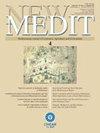水处理和回用:瓦尔达宁灌区(突尼斯)水价政策的经济可行性与评估
IF 1.2
4区 经济学
Q3 AGRICULTURAL ECONOMICS & POLICY
引用次数: 0
摘要
经处理的废水回用是缺水条件下的宝贵水源。如果说其技术可行性已得到广泛证明,那么经济评估则较少受到关注。通过对突尼斯东部 Ouardanine 灌区进行事后成本效益分析,评估了废水处理和回用于灌溉的经济可行性。对项目整个生命周期的成本和效益数据进行了评估,并考虑了四种方案--不处理、处理、处理后回用以及处理后回用但不考虑环境效益。结果证明:除第一种情况外,所有情况下该项目在经济上都是有利可图的;即使成本增加或收益减少达 30%,该项目仍然有利可图;农民是该项目的主要受益者,而对于处理厂公司和负责配水的公共机构来说,该项目在经济上是不可行的;处理后的废水价格的可承受性取决于种植模式:水价提高后,桃子种植者仍将获得可观的收益,而橄榄种植者的收益将大幅减少。本文章由计算机程序翻译,如有差异,请以英文原文为准。
Treatment and reuse of water: Economic Feasibility and assessment of Water Pricing Policies in Ouardanine irrigation district (Tunisia)
Treated wastewater reuse is a valuable water source in water scarcity conditions. If its technical feasibility is largely demonstrated, less attention is paid to the economic assessment. By applying an ex-post Cost-Benefit Analysis to Ouardanine irrigation district, in eastern Tunisia, the economic feasibility of wastewater treatment and reuse in irrigation was assessed. Data on costs and benefits were evaluated throughout the lifespan of the project and four scenarios - no treatment, treatment, treatment with reuse, and treatment with reuse without considering the environmental benefits - were considered. The results prove that: the project is economically profitable for all scenarios except the first; it is still profitable with an increase in costs or a decrease of benefits up to 30%; farmers are the main beneficiaries of the project which is financially not viable for both the treatment plant company and the public body charged of the distribution of water; the affordability of the treated wastewater price depends on the cropping pattern: with increased water pricing peach growers will still have substantial benefit while olive growers will reduce significantly their benefits.
求助全文
通过发布文献求助,成功后即可免费获取论文全文。
去求助
来源期刊

New Medit
AGRICULTURE, MULTIDISCIPLINARY-
CiteScore
2.00
自引率
30.00%
发文量
31
审稿时长
>12 weeks
期刊介绍:
New Medit is an applied economics journal, with a multidisciplinary approach, aimed at providing insights into the economic and the social transformations of agro-food sector, rural societies as well as local development and bioeconomy in the Mediterranean Basin.
Manuscripts submitted to NEW MEDIT generally should deal with wide-ranging topics that can be extended to other countries where organisational, production and market conditions and the related development policies may emerge at the corporate or regional level.
 求助内容:
求助内容: 应助结果提醒方式:
应助结果提醒方式:


